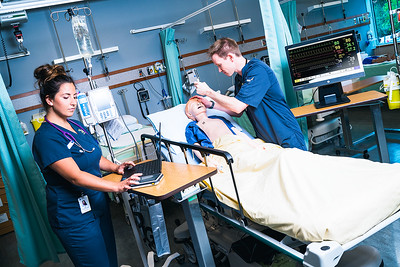I’ve written about the state of nursing education in Michigan as the legislature grapples with a looming nursing shortage. Well, if the results of a recent survey are correct, the legislature better start grappling a lot faster.
According to a ShiftMed survey of its own employees, two-thirds of nurses say they’re planning to leave the nursing profession within the next two years. Chronic staffing shortages, longer shifts, larger patient loads, mental health issues and lack of time off were all cited as reasons for moving on from nursing.
Right now, the profession is already struggling to fill open positions. If the survey is anywhere close to correct, a mass resignation could spell danger for the nation’s medical establishment.
Michigan lawmakers have toyed with the idea of granting all community colleges the right to confer 4-year nursing degrees. The real problem, as I have previously written about, is not the lack of classroom space, but rather, the lack of clinical space. Nursing education programs are accredited separate from a college’s general accreditation. To meet the requirements of the nursing accreditation committee, schools must typically provide clinical practice opportunities. Each nursing student will be paired with a nursing supervisor, who has at least an RN. This “apprentice” model is central to nursing education.
If we need to replace two-thirds of our nursing professionals in the next two years, then clearly, we need to make adjustments to the nursing education model.
Here’s an idea: instead of building the “Advanced Transportation Center,” build a simulated hospital and nursing classrooms to create a nursing school at WCC, complete with clinical space that’s entirely under WCC’s control.
Nursing building would eliminate roadblocks to nursing education
Right now, WCC nursing students don’t get priority placement for clinicals anywhere. That means WCC nursing students may get passed up for placement. That either delays their ability to graduate or reduces the quality of their clinical experiences.
With a fully equipped facility, with simulator space, WCC could increase the capacity of its nursing program substantially. Provided, of course, that it could also find qualified nursing instructors.
Other community colleges facing the same dilemmas have done the same thing. Another possibility is to build regional simulators that could serve multiple community colleges. The simulators could mimic both inpatient and outpatient nursing environments.
The best part about this kind of facility is that it would allow this area to move the needle on training healthcare professionals. It would address a critical need in Washtenaw County and the surrounding areas. And perhaps best of all, the building would qualify for the full match for state funding.
Photo Credit: Province of British Columbia, via Flickr






















